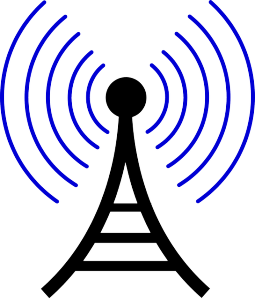 A secret cell phone tracking system used by law enforcement for over a decade is slowly being exposed, but defendants and their attorneys are still being left in the dark in thousands of criminal cases each year. The technology commonly referred to as stingray consists of an array of sophisticated electronics, which fit inside a box about as big as a suitcase. The cost is steep, with each unit running over $400,000, and the right to use it comes with the catch of signing a non-disclosure agreement with the FBI and receiving training with the Secret Service on cellular theory. The general premise of the device is to simulate a cell phone tower to lock into a specific phone, which can ultimately lead the operator and his or her team to within a few yards of the target. The exact range of the device is unclear, but law enforcement apparently must first secure a general location from the cell phone company before deploying the stingray. Baltimore City’s so called Advanced Tactical Team has used this system over 4,000 times since 2007, resulting in thousands of arrests and hundreds of convictions. But the success of this surveillance technology comes at a high price.
A secret cell phone tracking system used by law enforcement for over a decade is slowly being exposed, but defendants and their attorneys are still being left in the dark in thousands of criminal cases each year. The technology commonly referred to as stingray consists of an array of sophisticated electronics, which fit inside a box about as big as a suitcase. The cost is steep, with each unit running over $400,000, and the right to use it comes with the catch of signing a non-disclosure agreement with the FBI and receiving training with the Secret Service on cellular theory. The general premise of the device is to simulate a cell phone tower to lock into a specific phone, which can ultimately lead the operator and his or her team to within a few yards of the target. The exact range of the device is unclear, but law enforcement apparently must first secure a general location from the cell phone company before deploying the stingray. Baltimore City’s so called Advanced Tactical Team has used this system over 4,000 times since 2007, resulting in thousands of arrests and hundreds of convictions. But the success of this surveillance technology comes at a high price.
While stingray system does not have the capability to intercept cell phone content such as text messages or pictures, it does capture information from almost every cellphone in its range. This typically includes phones of dozens of innocent bystanders who as a collateral consequence are electronically tracked by police. The unintended location tracking of innocent phone users by law enforcement is disconcerting, but it’s hardly a cause for outrage. The real concern is that use of the stingray system has created a climate of blatant disregard for the Constitution, and the Maryland electronic surveillance laws to boot.
In Baltimore the thousands of stingray aided arrests were most likely effectuated in violation of state electronic surveillance laws. City police officers rarely considered applying for search warrants to use stingray, and most of the time would not even notify prosecutors when they used the hi tech system to locate the suspects they arrested. Police would deliberately fabricate their reports as if using the stingray system never happened, stripping defendants and their attorneys of the opportunity to challenge the legality of the surveillance. In cases where prosecutors and defendants asked too many questions, such as when cops magically appeared in the exact right place to solve a crime with no explanation on how they got there, the police officers would button up and site their non-disclosure agreement with the feds. Most of these cases where the police work was seemingly too good to be true ended up being dismissed, and in total about one third of the over four thousand stingray arrests in Baltimore suffered this same fate. These numbers included serious felony arrests such as kidnapping, robbery and murder, which according to the FBI are solved each day using the stingray. But the technology is often used in less serious cases such as theft, drug distribution and destruction of property, where it is much tougher to justify ignoring privacy laws. Regardless of the eventual outcome of the stingray cases, damage is done as soon as an illegal arrest is carried out. You cannot simply unarrest a defendant whose rights have been violated.
The Blog will continue to follow further leaks and developments on the stingray technology, and may post a follow up article in the future. It is possible down the road that warrantless use of the system could be restricted violent felonies where lives are at stake, but barring legislative action it seems as if the technology is here to stay and will be used to solve all types of criminal cases. Benjamin Herbst is as Maryland criminal defense attorney who handles all types of charges ranging from robbery and murder, to drug distribution and theft. Contact Benjamin anytime for a free consultation about your case at 410-207-2598.
Resources
Police secretly track cellphones to solve routine crimes, usatoday.com.
 Criminal Defense Lawyer Blog
Criminal Defense Lawyer Blog

